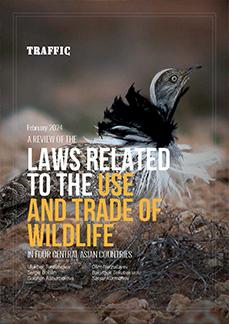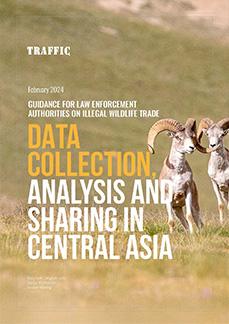
Wild plants are the unsung heroes of our ecosystems. Approximately 1 in 5 people depend on them for income and food, while they also play a vital role in medicine and sustain countless animal species.
However, many wild plant species are threatened due to overharvesting, habitat destruction, or climate change, placing livelihoods at risk.
Taking inspiration from successful practices in the fisheries sector, our goal is to adapt, trial, and apply similar methods to wild plant harvesting through the creation of multistakeholder improvement projects.
This approach will allow us to protect wild plants while supporting the livelihoods of those dependent on them.
100
or more stakeholders will be involved in this work
Uzbekistan
is the second-largest producer of wild-harvested liquorice
10
or more small and medium-sized businesses will be involved in the pilots receiving training on sustainability and conservation
Morocco
is the only country to export argan
Addressing challenges in the sustainable wild plant trade
Improving the wild plant harvesting landscape is vital for environmental protection, fair treatment of harvesters, and ensuring equitable wages.
Certifying wild-harvested plant products is crucial to reaching these goals, but all stakeholders must support these efforts to ensure long-term sustainability.
Certification of wild plants presents challenges similar to those in the fisheries sector. Harvesters often face low prices and struggle with limited access to processing facilities, which affects both their livelihoods and the sustainability of the plants they harvest.
We're partnering with MBLA in Morocco and FairWild to explore certification strategies across diverse landscapes.
By involving harvesters and stakeholders in assessing benefits and improving market access, our goal is to empower communities with stable incomes while promoting sustainability.
Argan oil is produced from the kernels of the argan tree, endemic to Morocco © ugurhan / Getty Images
i
Where will the pilots be conducted?
Morocco
In the southwest of Morocco, women from the local Amazigeh indigenous communitity are the primary collectors of argan kernels, which are later processed into argan oil.
Argan oil is highly valued for its use in cosmetics and serves as a crucial source of income for these rural communities.
Many women are members of or lead cooperatives—some certified organic—yet still face discrimination, low wages, and challenging working conditions, despite the increasing market value of argan oil.
Working with Moroccan Biodiversity and Livelihoods Association, and the Global Diversity Foundation, we will explore improvements to wild plant harvesting that improve conservation and livelihoods outcomes in Morocco.
Our aim is to evaluate where barriers and opportunities exist with the aim of improving effectiveness, enhancing the livelihoods of argan harvesters and conserving argan forests.
Learn about responsible sourcing of Argan through our WildCheck platform
Hadria, a member of the Cooperative Feminine Mogador shows us freshly harvested argan fruit ready for processing © TRAFFIC
i
Uzbekistan
Liquorice is one of the most widely used medicinal plants globally.
Conventional harvesting methods in the deserts involve ploughing to reach the root, causing habitat damage, soil erosion, and local dust storms. Yet, sustainable harvesting methods are available.
In partnership with FairWild Foundation, this project aims to implement sustainable practices to safeguard this valuable resource for future generations.
Businesses can contribute to the conservation of wild liquorice by supporting responsible sourcing, with standards and certifications available on our WildCheck platform.
Check out our insights into the liquorice root trade in Kazakhstan
Liquorice root for sale at a market © michelangeloop / Getty Images
i
Curious about the trade of other wild species in Central Asia aside from liquorice?
Explore the current laws, trade dynamics, and the species involved.
This project is kindly funded by the UK Government through the Darwin Initiative.






